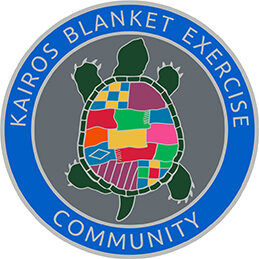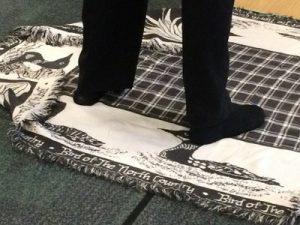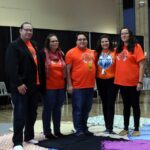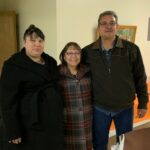This article was published in Amherst News as an invitation to participate in a KBE at Trinity-St. Stephen’s United Church on Oct. 5. A reflection by Rev. Natasha Pearen.
Have you ever participated in a KAIROS Blanket Exercise? Have you ever wondered what does reconciliation have to do with me? KAIROS Blanket Exercise is an incredible interactive educational tool in which you will learn the common history shared between Indigenous and non-Indigenous peoples in Canada.
I was first invited to participate in a KBE in 2009 when I was living in Alberta. Local United Church representatives were invited to tour Goodfish Lake and Saddle Lake First Nations.
After meeting various leaders, hearing about their way of life and learning about their vision for the future, we were welcomed into the healing centre. Their community leaders facilitated the unique learning program of the KBE for us. We began by gathering in a circle and then were invited to stand on blankets in the centre. We took on the role of Indigenous People on the land before contact, while the history of Canada was shared around us. For me, it was a particularly moving experience as I was holding my young daughter in my arms. I felt tears coming to my eyes as I lamented the struggles of the past while hoping for improved relationships for future generations.
This encounter and Jesus’ encouragement to seek justice and love, have prompted me to seek opportunities to move towards right relations and reconciliation within the churches and communities in which I have served. Over the years, the information offered in the KBE has been updated and new versions have been adapted to better reflect specific geographic regions across the country.
Those who participate in a KBE overwhelmingly find the experience to be useful and educational. Participants some times initially feel uncomfortable or nervous but the atmosphere created is one of welcome and mutual respect. It is not intended to blame, shame or guilt participants over the actions of those in history. Rather, it is about creating a basis in which we can move forward together.



